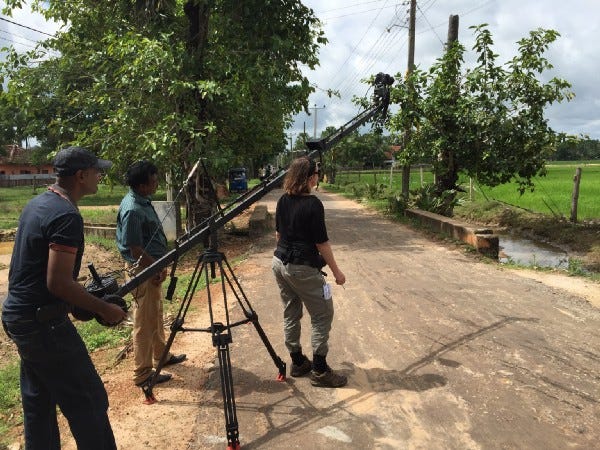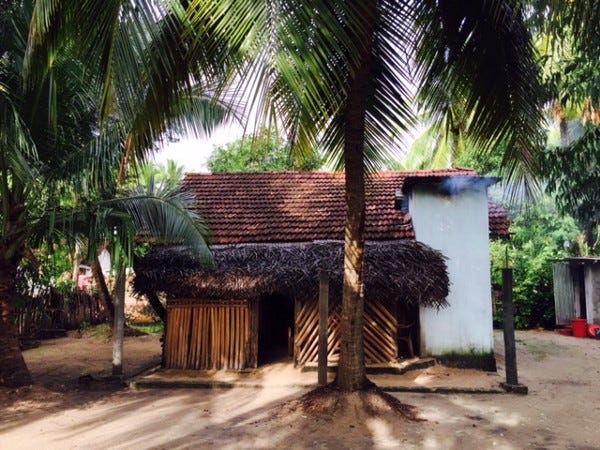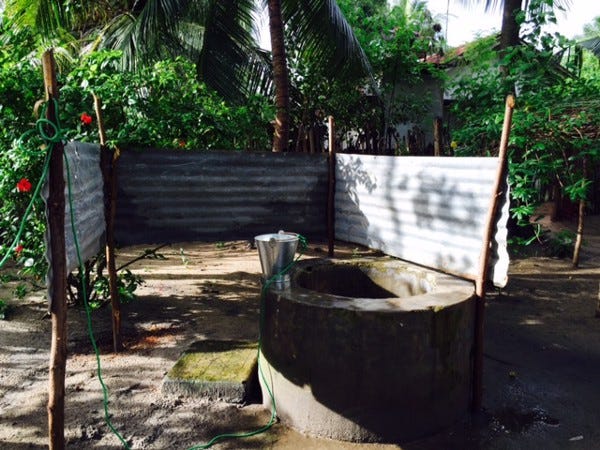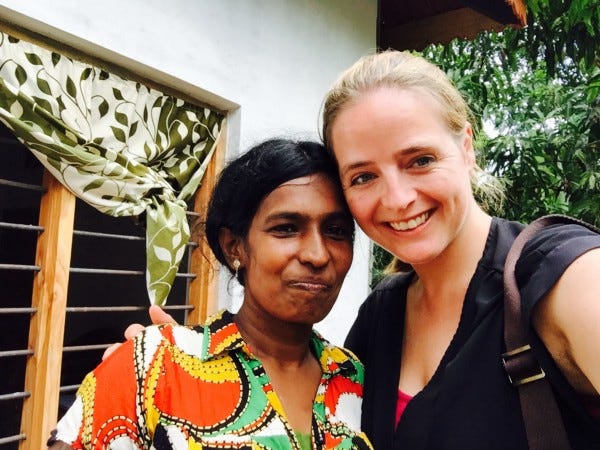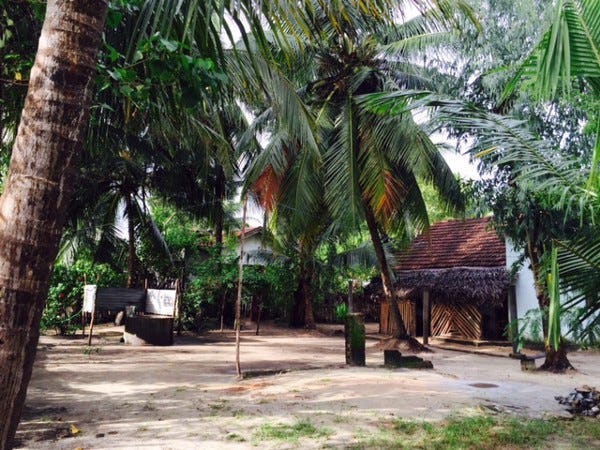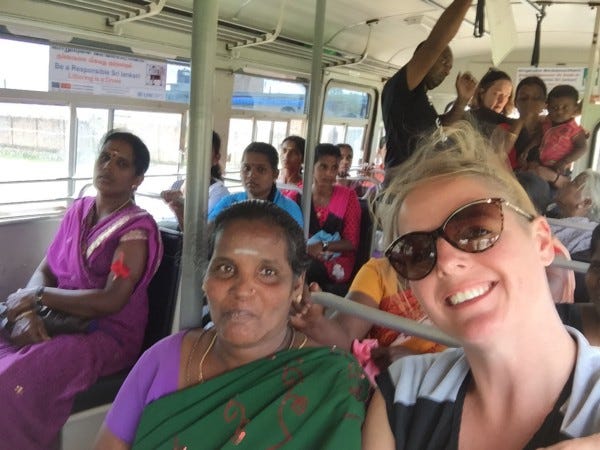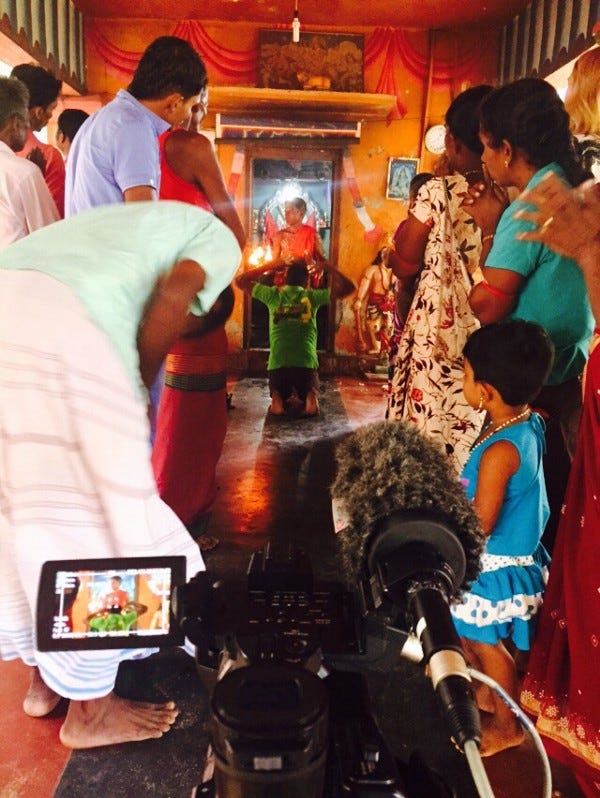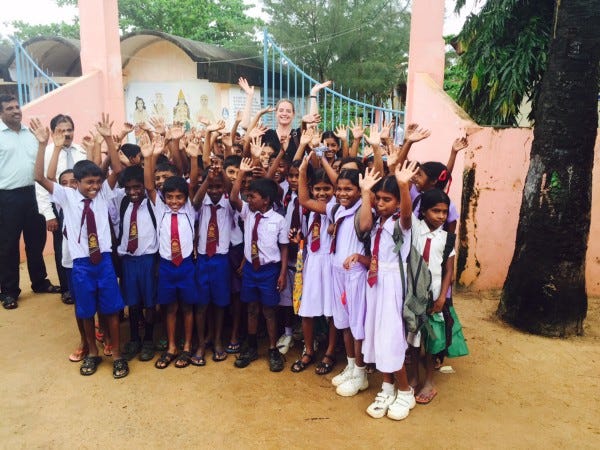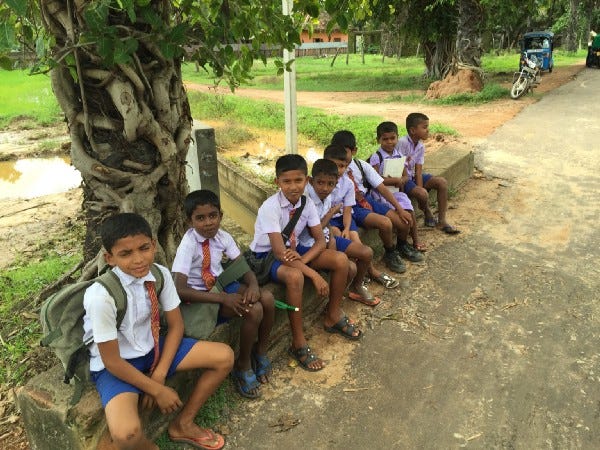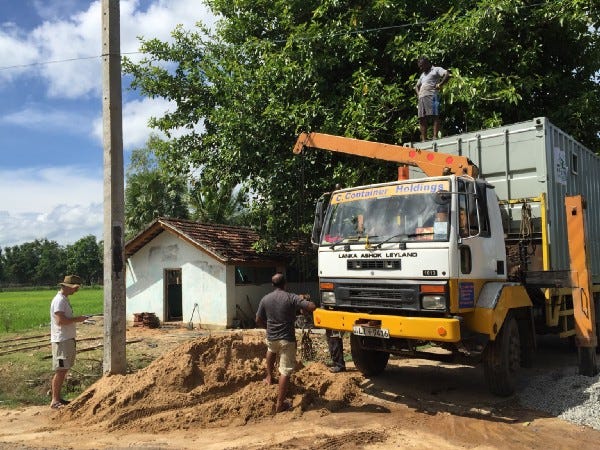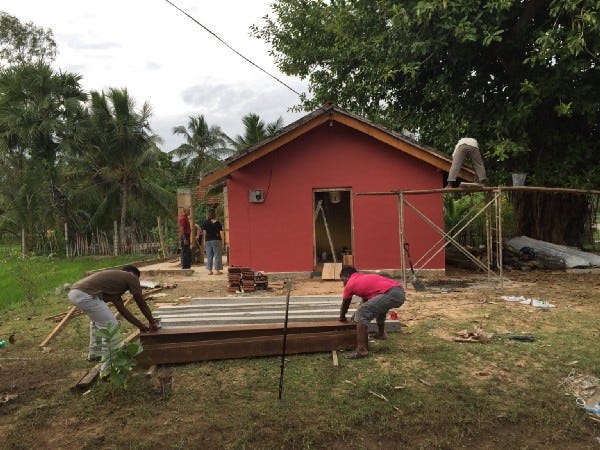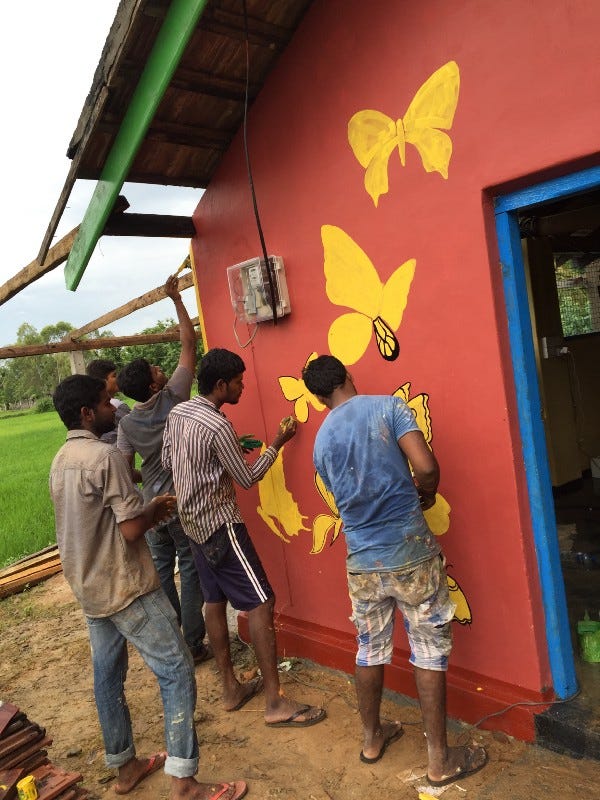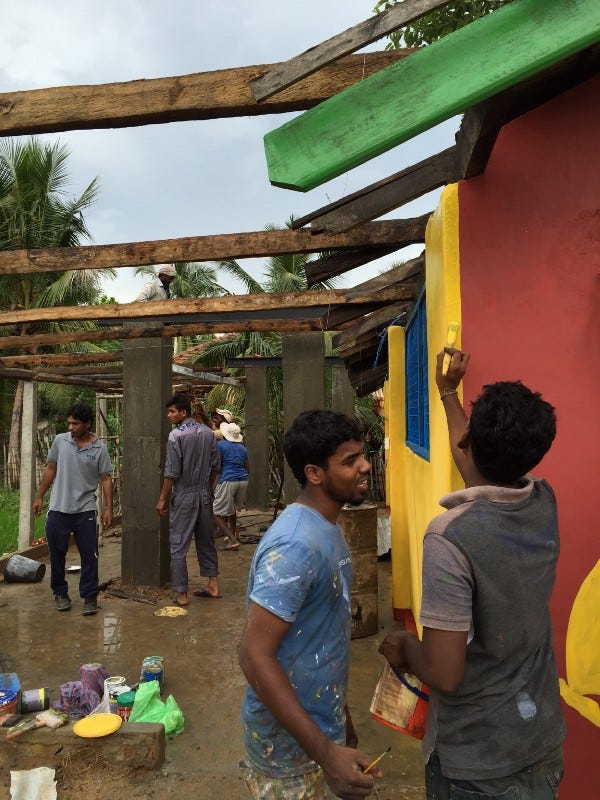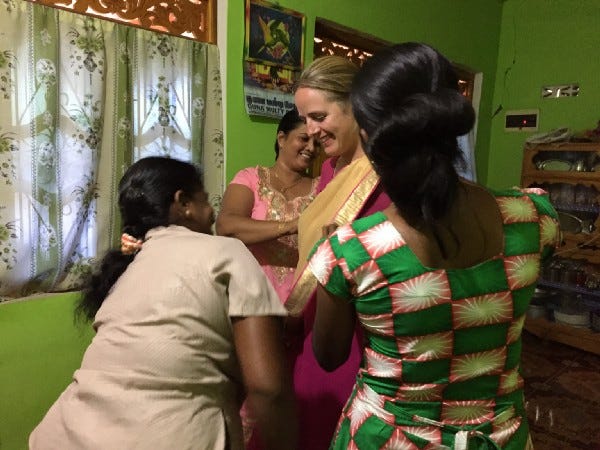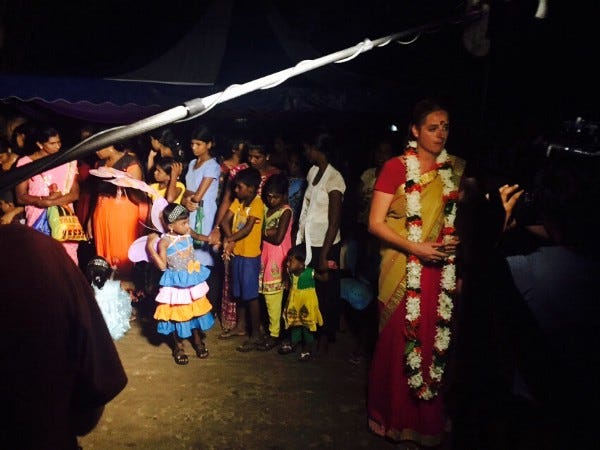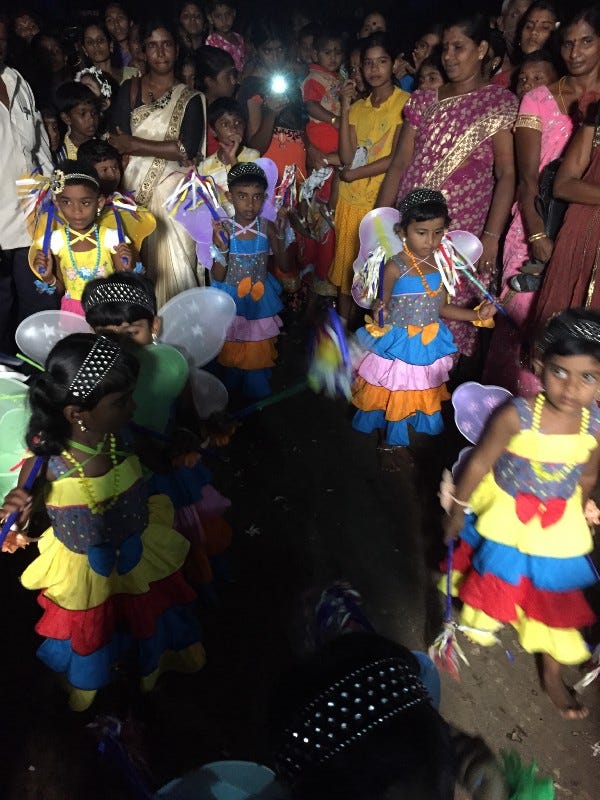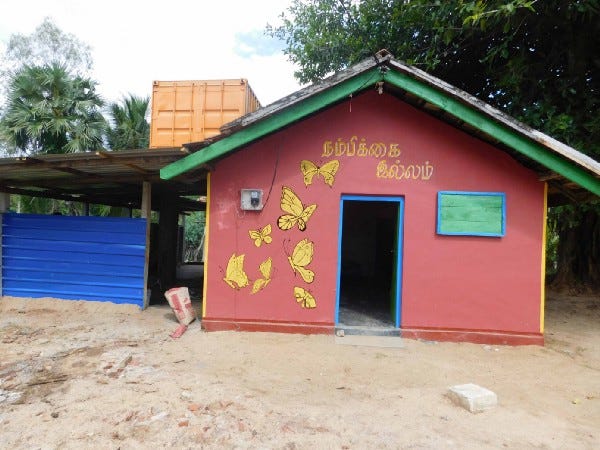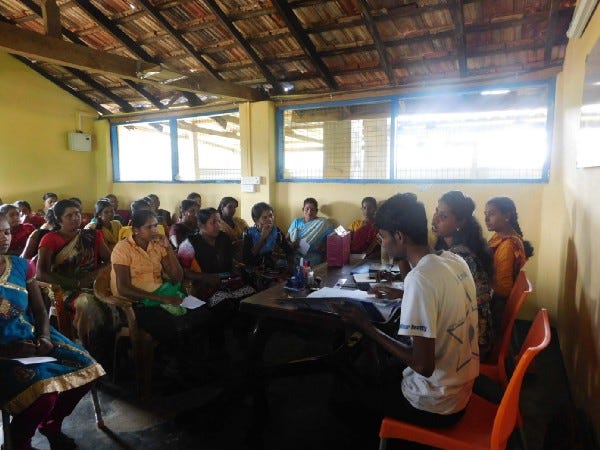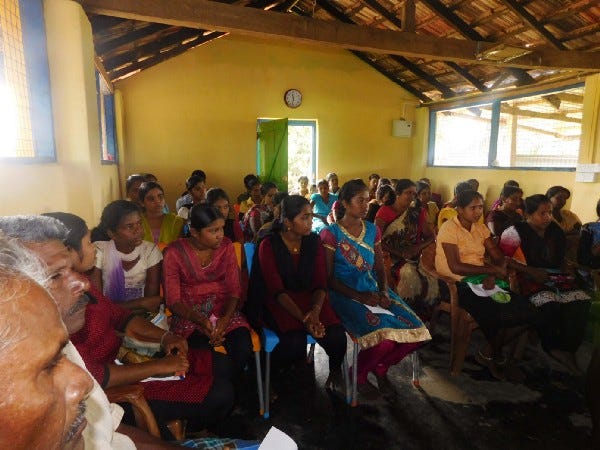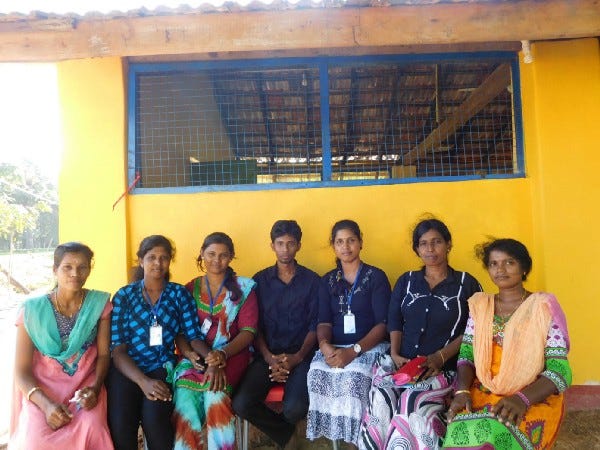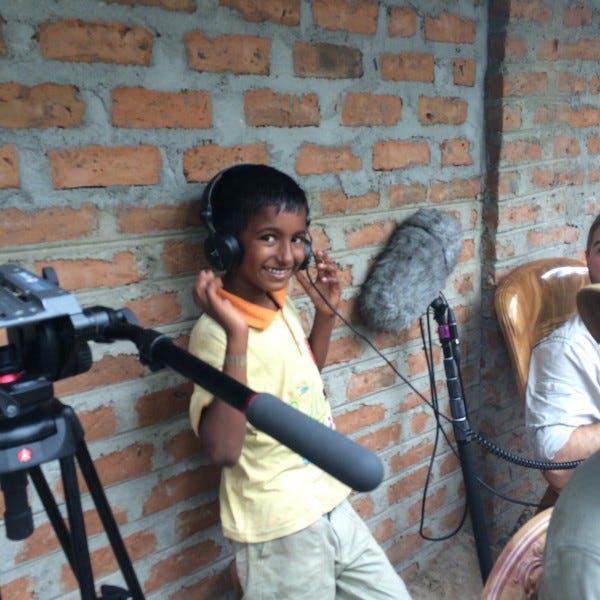Founding Hope House: The Sri-Lankan Adventures of a Documentary-filming Entrepreneur
In November 2015 I was privileged enough to be invited on one of the biggest and most eye-opening adventures of my life. I was selected to get involved in the filming of an episode for the National Geographic documentary series, ‘Undercover Angel’ — a format designed to drop successful (very flattered!) business entrepreneurs into under-privileged areas around the globe in the hope that they could use their business experience and means to initiate and set-up sustainable projects to help support and develop struggling communities. This is my brief story of that incredible, life-changing experience.
I’ll be honest and say I wasn’t entirely comfortable with the format from the outset and I struggled for some time with whether I should get involved. Schizophrenic attitude to media lime-light aside, the formula was a variation on the ‘Undercover Millionaire’ series — starting from the premise that I was entitled, high-net-worth, and naïve to the struggles of developing, deprived communities. But this of course is, in the main, true — certainly relative to many communities and in my charmed, day-to-day existence. But over endless discussions with my husband, Gray — we decided that this was a unique and incredible opportunity- both to give back and share some of our good fortune, and to self-discover, shake me from my happy comfort-zone and sharpen my humility.
Prior to my taxi arriving at Heathrow that cold morning in November, I was given only enough information about the destination to determine which inoculations to get (a wide global long-list of destinations!) but the ticket I was handed said Colombo, and off I set, along with my very own film crew and a growing sense of terror plus guilt at leaving behind my husband, a 2 year old and a tiny 4 month old.
On arrival at Colombo, my phone was confiscated (one of the biggest personal challenges of the coming week!) and I was thrown into a rusty tin-can truck and transported cross country for what felt like hours. The conversation with my friendly, welcoming driver eventually dried up in my travel fatigue and I sat back enjoying the views of bustling road-side life, plus, the odd wild elephant holding up the traffic.
Six hours later, my rucksack and I were ejected at a small car-ferry landing for the short crossing across a wide, murky river. I recall the fellow passengers watching me and gazing at what felt like my insensitively naked legs in Western holiday-maker shorts and my unease grew. The rusty sign that met me on the other side simply said ‘Ampilanturai’ — welcoming me to this tiny village on the east coast of the country. As I sat in the waiting-shack, (fishing around frantically in my rucksack for some long trousers) whilst the crew captured scenic shots, my interpreter arrived and the film crew shifted their focus to me, filming my first impressions. This was, without a doubt, one of the most surreal experiences of my life. Here I was, dropped in the middle of a paddy field only 20 hours from my front door, being asked to think out loud into a camera lens without any clue as to what was going to happen next. The British film crew were allies of a kind, but not really… friendly and reassuring in many way, but also aloof and silent to my questions, preferring to capture my unease than assuage it.
A tuk-tuk arrived to carry me off across paddy fields and into a jungle, through which narrow muddy lanes wove, and off which small dwellings appeared — single room hut-homes, with red tile roofs. It was eerily quiet. The odd child’s face peered out at us silently from behind palm-leave fences. We stopped at one dwelling and I was lead through the gate into a small yard surrounding a small, square concrete hut — my home for the next few days. In the yard, there was a well, next to which a bucket on a rope lay. It didn’t bode well.
Inside there were three rooms — the main entrance room in which there was only a raised wooden platform (the dining table?); a back room, packed with boxes (the inhabitants’ belongings cleared away for their temporary new tenant) and what I presumed to be a small kitchen, containing just a few pans and an open fire place.
Over restorative cups of tea and with cameras turned off, the ‘rules of engagement’ were discussed. I was to spend 3 days exploring the village and meeting with local residents. My ‘cover’ was that I was a British mother filming a documentary about the lives of other mothers of young children around the world (close enough to the truth to be believable), but my real agenda was to try to get under the skin of the village and learn more about its challenges with the intention of coming up with a business start-up/ community project that I could set in motion by the middle of the week and complete by the weekend… (Riiiiiight. No pressure then — anyone else remember ‘Challenge Anneka’?). The work was to start right now and after a quick splash of well-water to freshen up, my interpreter lead me down the muddy road, film crew shadow in tow to meet with the owner of the village convenience kiosk.
Jaya Kumari was my age. A single mother and disabled. Her left arm hung awkwardly at her side, deformed and useless. Her business consisted of a small shack with a window from which she sold sweets, soap, shampoo sachets, sugar, eggs and stale biscuits to passing villagers. She invited me into her home to help her prepare lunch and over food, we chatted about her life whilst her young son peered out at me shyly from behind the kitchen curtain.
During the civil war 10 years previously she had been drafted as a quartermaster for the Tamil Tiger insurgents who roamed through the jungles in this region. She was badly injured in a government shelling attack on the village and was hospitalised, although refused the amputation that was advised. It was here in hospital that she met her husband, another less seriously damaged patient. She had considered herself over-the-hill (in her late 20s) for marriage and was now severely physically disabled, but she recounted the story of a kind man who persistently chased her, despite her protestations of being ‘damaged goods’. They fell in love and he implored her to allow him to take care of her. They were married within 6 months, had what I discovered to be a rare ‘love-marriage’ amidst the turmoil of war and were blessed by the birth of a son within the year. It was just one year after their son’s birth that he vanished, just as many local men did — there one minute, gone the next. The truth was apparent to me, but seemingly not to her. She cried as she told me how he was just one of the ‘missing’ and that she had to believe he could still be alive somewhere, displaced, temporarily lost and that he may still return and I felt my own tears appear. Who was I to tell her otherwise? Above her as she spoke, was a photograph of her with her now 7 year old son with the last picture taken of his father digitally super-imposed into the image next to them. I thought of my own family and it broke my heart.
She scraped a living for her son selling these stale biscuits and sacheted goods. A good day and they ate relatively well, a wet or quiet day with little passing trade and they went hungry.
That first night as I lay down on the solid dining table I now appreciated to be my bed — I cried. I consider myself to be a pretty hardened adventurer, far from unaware of the extremes of poverty in this world. I had lived and worked in an incredibly impoverished part of Western Kenya with my then-fiancé some years previously, where we witnessed heart-breaking hardship. But despite this, I felt as dispirited, depressed and alone as I had ever felt. I was exhausted from the travel, I missed my children and I wanted nothing more than to call my living, loving, supportive husband to share the detail of what I had seen and seek his counsel on the task ahead. I was developing a bad head cold and in my exhaustion, I got back up and had my first cigarette in years under the moonlit palm tree in the silent yard. The rest of that week, I ploughed through a pack a day.
Day 2 and 3 involved many similar encounters and Jaya’s story, as I came to realise was depressingly echoed throughout the village. I met Lakshmi, another widow and single mother to 5 girls aged 7–14 (one deaf and mute) and accompanied her on her working day into town on the bus– a rare companion to assist in carrying the three massive sacks of rice flour she was taking to sell — one on her head and one in each hand. Some days they sold, many they did not. Again, some days that family ate, many they did not. I met a local seamstress, who spent her days patching up tattered old school uniforms. I visited a pre-school and a temple to talk to more of the local women (and where I had a frightening experience with a woman possessed by a snake); I learnt about the caste-system- still depressingly divisive.
The women of Ampilanturai were all uneducated and devoid of options or opportunities to improve their lives — they lived hand to mouth and they worried constantly about the children’s future. And there were eerily few men in this village. A sadness and grief hung around the otherwise idyllic, palm-tree lined village and yet, there was an acceptance of their fate- everyone just carrying on and doing what they could for the sake of the children. Even long after the end of the war, Ampilanturai was fighting its daily battles, and frankly, it seemed to be dying.
Amidst frequent musings to camera (which I became weirdly comfortable with), bicycle rides around the village with the kids, amblings across paddy fields and during the quiet nights on my torture-rack bed, my ideas started to coalesce and I realised that the only thing of value that I could potentially contribute here would be education. But… and it was a big ‘but’, I had only three remaining days to come up with a plan and implement it prior to flying off home and potentially out of these people’s lives. It was a mere drop of time, but it offered a hint a promise.
The next day I had to ‘come out’ to the village as to my true purpose in order to recruit helpers to the cause. I was bedecked with soggy, beautiful flower garlands post my announcement on the steps of the primary school. Women appeared everywhere, hugging me and sniffing me (a disconcerting local act of affection — and a little unwelcome due to the aforementioned shower facilities) and I was suddenly overwhelmed by waves of fear and imposter syndrome. Who the hell was I to presume that I could do anything meaningful to help them or improve their lot?! I swallowed it back and focussed on doing something. Anything.
The next four days were a blur of activity. Thankfully, the film crew had contacts and a project manager available, primed to support me in whichever direction my ideas turned as without this, I would have been powerless. All my years of entrepreneurialism and successful business-building were worthless without local speakers, experts and ‘fixers’ — and fix they did, with an efficiency and speed that any one of the start-up businesses I’ve been involved with would have been proud of. We scouted the village in search of an available, vacant building; we met with government officials to outline my plans, bartered in the furniture and and electrical shops in the local town and grabbed road-side pakoras where we could.
Eventually, we found a vacant building at a village cross-road— bordered up, tatty and termite-infested, but with what appeared to be a stable, weather-proof concrete edifice. Plus there were big trees in the garden under which I could imagine children playing whilst their mothers trained. It could work. Bizarrely, I had to hire a snake-charmer to ‘clear’ the building of evil and drive out the unwelcome current inhabitants (with his own poisonous cobra!) before setting about the task of clearing it and making it a welcoming environment for learning. The site wasn’t quite big enough for everything I wanted so I discovered that we could add a shipping container room to the side, above ground — a perfect, secure room for computers. I bought one (one of the more bizarre purchases I’ve made in my life — alongside the tuk-tuck and the live cow I found myself acquiring the following day) and it was immediately dispatched by lorry from Colombo on a slow, two-day journey.
I interviewed local women for three full-time manager and caretaker roles within the centre. I obsessed disproportionately about a butterfly mural I wanted on the wall — a symbol that reminded me of my daughter’s freshly painted nursery back home — and in my head, the project had become ‘Hope House’ (I even had a sub-brand slogan: ‘Giving Ampilanturai wings’ — with apologies to Red Bull).
The time available didn’t give us scope to do everything I wanted. We would need to find and appoint IT, language and sewing teachers, arrange the delivery of more technology and office supplies and start to market the centre to the community — but I was given a critical alliance at that time to reassure me of ongoing support with the project. Ocean Stars is a brilliant British charity operating in this region — predominantly with child initiatives, solely funding the running of a number of pre-schools across rural Sri-Lankan communities. They were the perfect partner for me. They already operated the pre-school in the village and had local staff on the ground, working from the nearest town, ready and willing to support me with administering the day-to-day operations.
The last 24 hours were some of the most stressful of my life. Problems with red tape, workmen not following instructions, the late arrival of the shipping container –whose concrete foundations had been incorrectly set, requiring it to be temporarily hoisted into the boggy field next to the centre and much, much more. The no-nonsense, frustrated business-manager in me had to come out in full-force on more than a few occasions.
I cut the ribbon to open the centre at 7pm on the final night. The butterfly mural was still wet, the new concrete floor not yet set — and so full access was unfortunately denied to the villagers for now — but Hope House was so nearly open for business, and by god, we celebrated! The village turned out en-masse in the centre’s garden, spilling out on to the road — everyone in their best, beautiful saris under glowing fairy lights and bedecked with fragrant, blooming flower garlands. (I had been painstakingly pinned into my own sari by my new friends at a girly pre-party, quite reminiscent of many Friday nights past- minus the sauvignon). Children squealed and ran around, they performed oddly translated English nursery rhymes and we even enjoyed an impromptu, incongruous ‘Gangnam’ dance routine from Jaya’s son.
I spoke to the crowds of my mission and hope for what the centre could provide: Learning, much needed skills, and in time, new employment opportunities to help regenerate the community — plus recreation. I wanted the centre to become a true community hub — somewhere that members from every caste could potentially come together — perhaps to watch national cricket matches on the big screen or family films with the children. Somewhere happy, somewhere hopeful… and that night, everyone’s eyes shone with the potential of what we’d built.
So why haven’t you seen this on TV? I wish I could tell you… and it’s partly for this reason that I haven’t written about or even mentioned it much over the last two years — the story is much better told by the film. The series was a global commission and has been sold and aired elsewhere around the world (or so the strange tweets I occasionally receive seem to confirm!) — but the vain part of me doesn’t actually mind too much. I’m not sure the world needs to see me that sweaty, in such high-definition, carrying that much post-baby weight, nor as oddly spoken –slow and over-enunciated (of course, for the benefit of my translator — although that isn’t apparent in the edit!). Frankly, I’m not sure how well I come across in it at all– a little too ‘cool’ and detached maybe (no weepy, comic-relief-style scenes here- I tend to be quite a steely person, emotionally) but to even worry about any of that in the context of the mission I realise is narcissistic.
I’m so proud of what we achieved in Ampilanturai and I’m proud of the film. It’s an accurate, colourful record of this incredible experience and much of what was going through my head at the time, and most importantly, it does justice to the very real challenges faced by the people I came to call friends. It’s a precious record for me of that time and something I can’t wait to share with my children when they’re older.
Two years on and the centre has more than fulfilled my ambition. I know from my African experiences that the very best of intentions can frequently go wasted on many on-the-ground community projects, underwhelming soon after the initial exuberance– and occasionally worse, subject to abuse. This is categorically not the case with Hope House. The centre continues to train 100s of people a month, has become the lively hub of the village — and all for the monthly cost of around 5 people’s UK gym memberships. So much so that Ocean Stars, who have done such a wonderful job with their on-the-ground management — have been petitioned by numerous other villages in this regions to set up more Hope Houses. And this, of course, is the agenda for this story — which I hope you’ve enjoyed.
Can you help? Any donations — whether cash, IT equipment or perhaps most importantly — time, would be so hugely appreciated. The impact of donations to this project and other similar initiatives could not be more direct and immediate — a little goes so, so far in these communities. Moreover, I would be utterly thrilled should anyone reading this be interested in experiencing this project for themselves or know of anyone else that might wish to. We would love more volunteers to visit the centre, understand its operations and advise on how they might be improved. Ocean Stars and its travel subsidiary can fully itinerise and manage volunteering experiences to this area, incorporating leisure time, as preferred (I hear the beaches are stunning). Just drop me a line and I can connect you directly. Ocean Stars and I would so love to expand upon this project in the coming months, bringing these much-needed community and training facilities to other villages, similarly still suffering the after-effects of the war.
Please find my justgiving page here: https://www.justgiving.com/fundraising/jessica-simpson40
With love and thanks to everyone that made this happen — Dilanee and her amazing team at Ocean Stars; Liz Friend, Emily Francey and Ben Leyton — the awesome RDF film producers and crew, whose months of preparatory work and travel made the achievements of this short, intensive week possible, and who were all the kindest, hilarious and most supportive of travel companions (just as soon as they’d got their angst-ridden, uncomfortable shot); To my incredible husband, beautiful children and strong, amazing mother who stepped up and held the fort that week and continue to support me in everything I do… I’m so, so lucky to have you. And last, but not least, Jaya Kumari, Jaya Teacher, Lakshmi and the many awesome, inspirational women and children of Ampilanturai. Thank you for allowing me to walk in your shoes and opening up your lives to me. Thank you so much for continuing to build so much hope and opportunity out of the small, (wet) foundations I left behind.





